L’atelier mii
L’atelier
mii
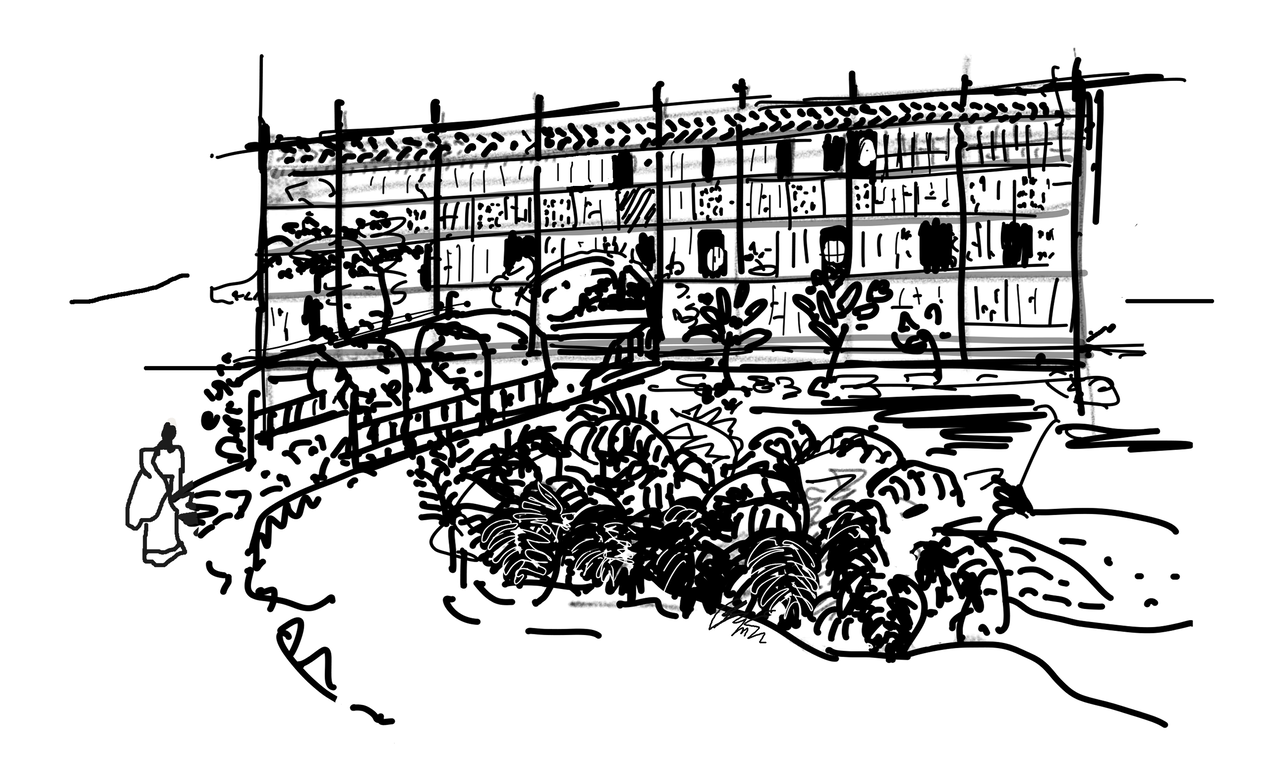
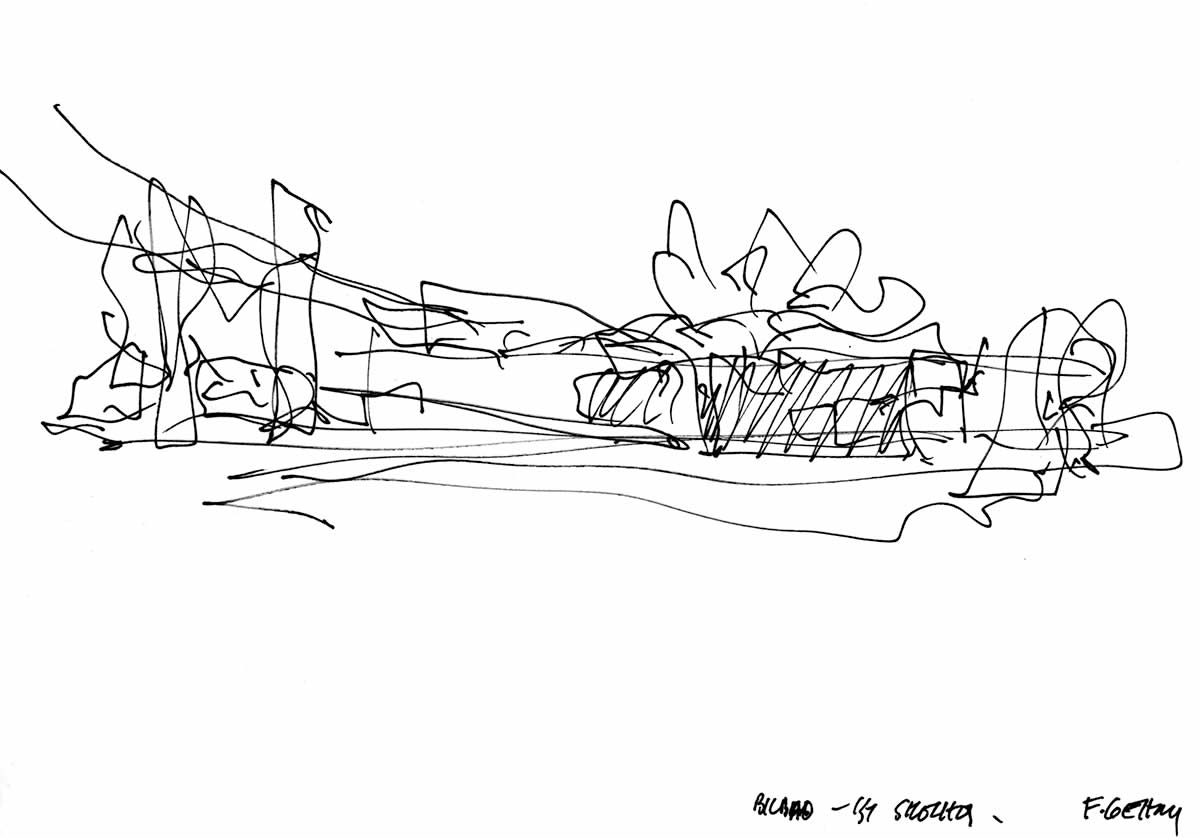
Nous avons fait le choix de monter notre atelier, dès le démarrage de la marque, pour maitriser l’ensemble du processus, de la création à la production. Connaître l’ensemble de notre chaîne, c’est mieux gérer nos coûts afin que le travail des artisans soit rémunéré sans de multiples intermédiaires, c’est aussi travailler en toute transparence !
A travers Mii, nous souhaitons remettre à sa place et sur le devant de la scène un savoir-faire textile ancestral exceptionnel comprenant de nombreuses techniques de tissages main et broderies main.
En Décembre 2023, nous avons inauguré notre nouvel atelier. Un lieu d’excellence et de recherche et développement.
Située dans le district de Bardhaman, dans la région du Bengale au nord-est du pays, il a été conçu pour s’adapter au climat de la région. Construit avec des techniques vernaculaires, c’est un bâtiment bioclimatique qui apporte lumière et ventilation naturelle tout au long de la journée à nos équipes.
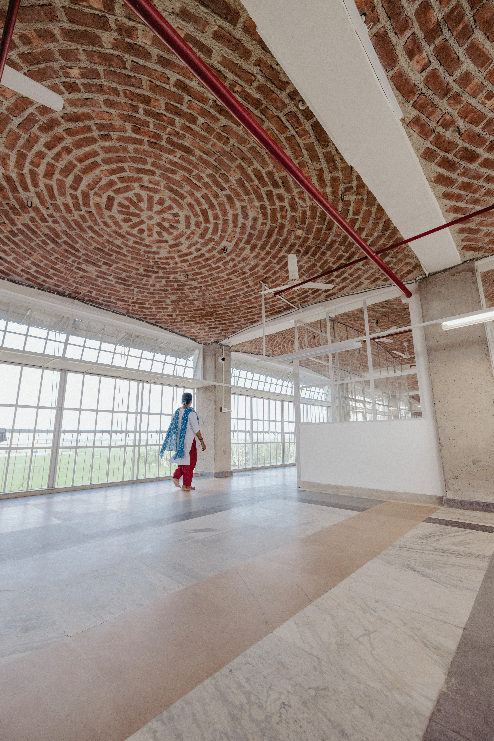
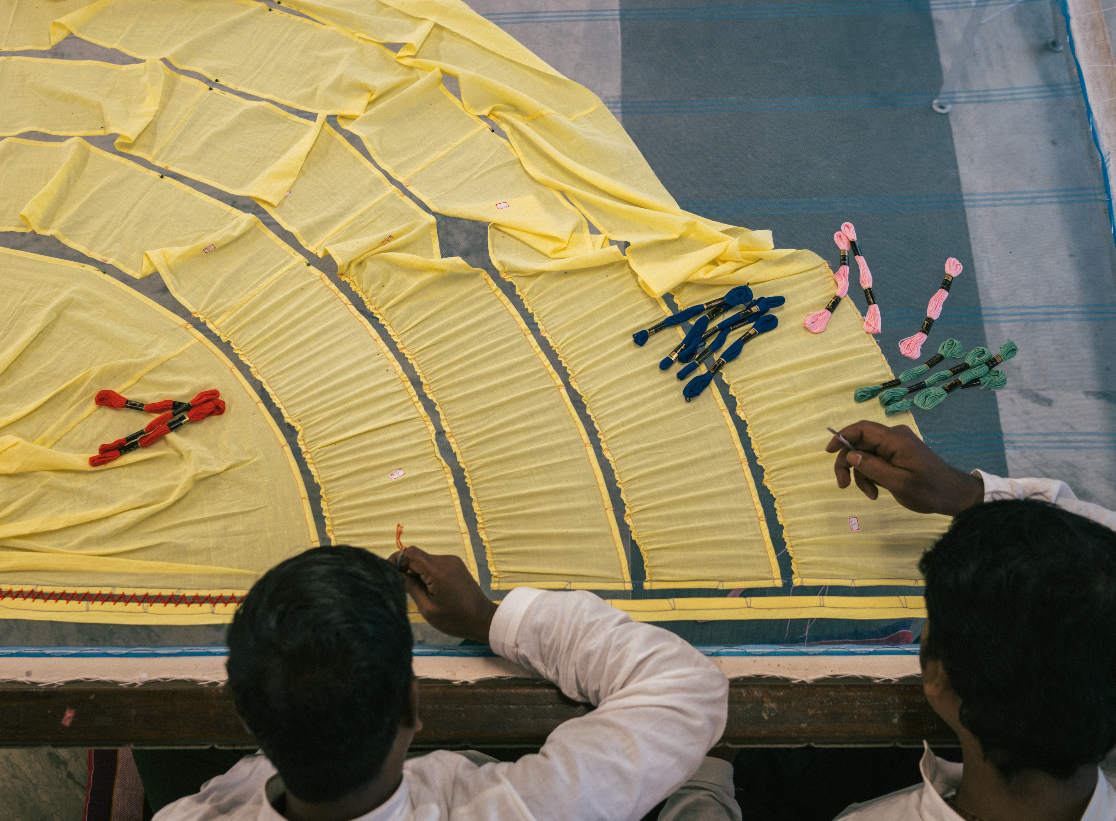
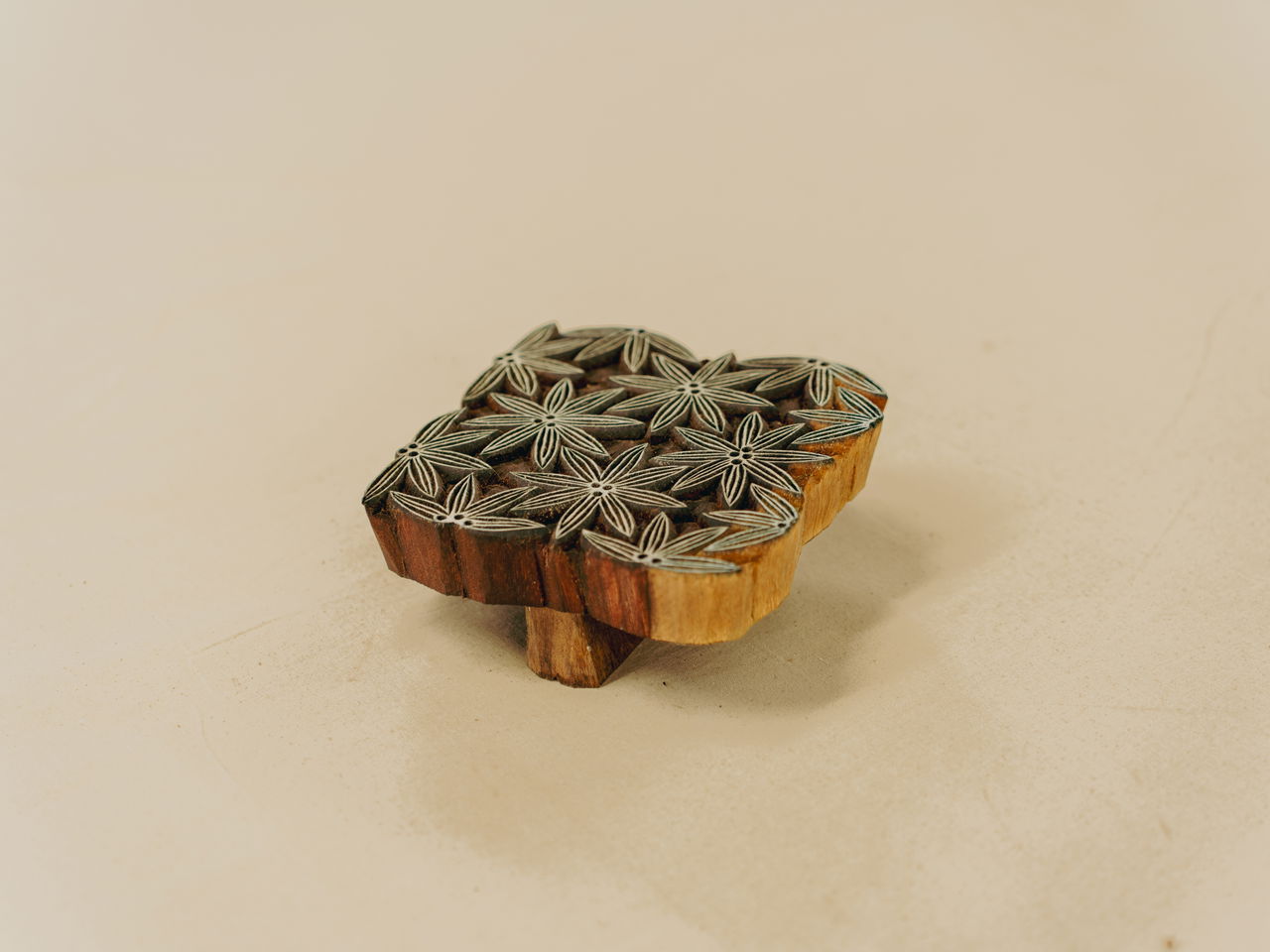
Nous avons choisi de nous installer en pleine campagne, au plus proche des villages d’artisans et artisanes et du lieu de naissance de Bapan. Notre souhait est de participer au développement économique de cette région isolée et d’y développer l’emploi.
L'atelier regroupe, de manière exceptionnelle, des techniques artisanales comme la broderie, l’impression au block et la sérigraphie combinées à de la technologie, machines de pointes pour la fixation des impressions ou encore la préparation des fils pour le tissage.
Nos tissages eux se réalisent toujours dans les villages sur des métiers à tisser traditionnels, c’est un choix que nous avons fait pour permettre aux villages alentours de se développer. Depuis plus de 10 ans nous travaillons avec les mêmes familles de tisserands.
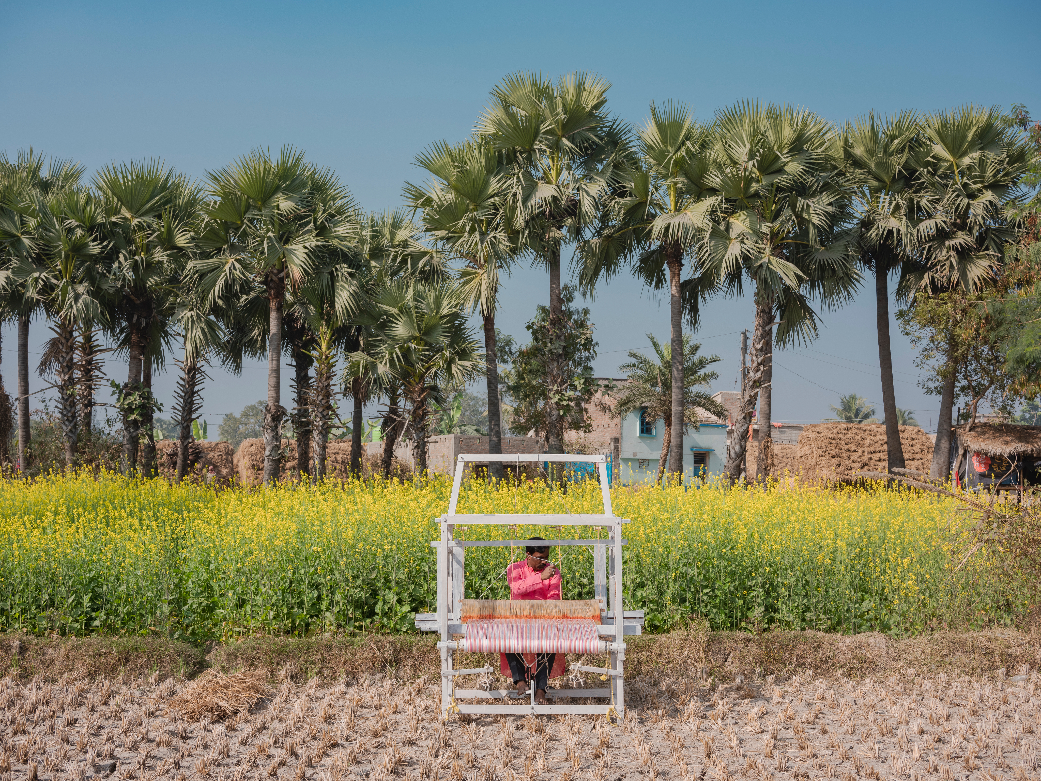
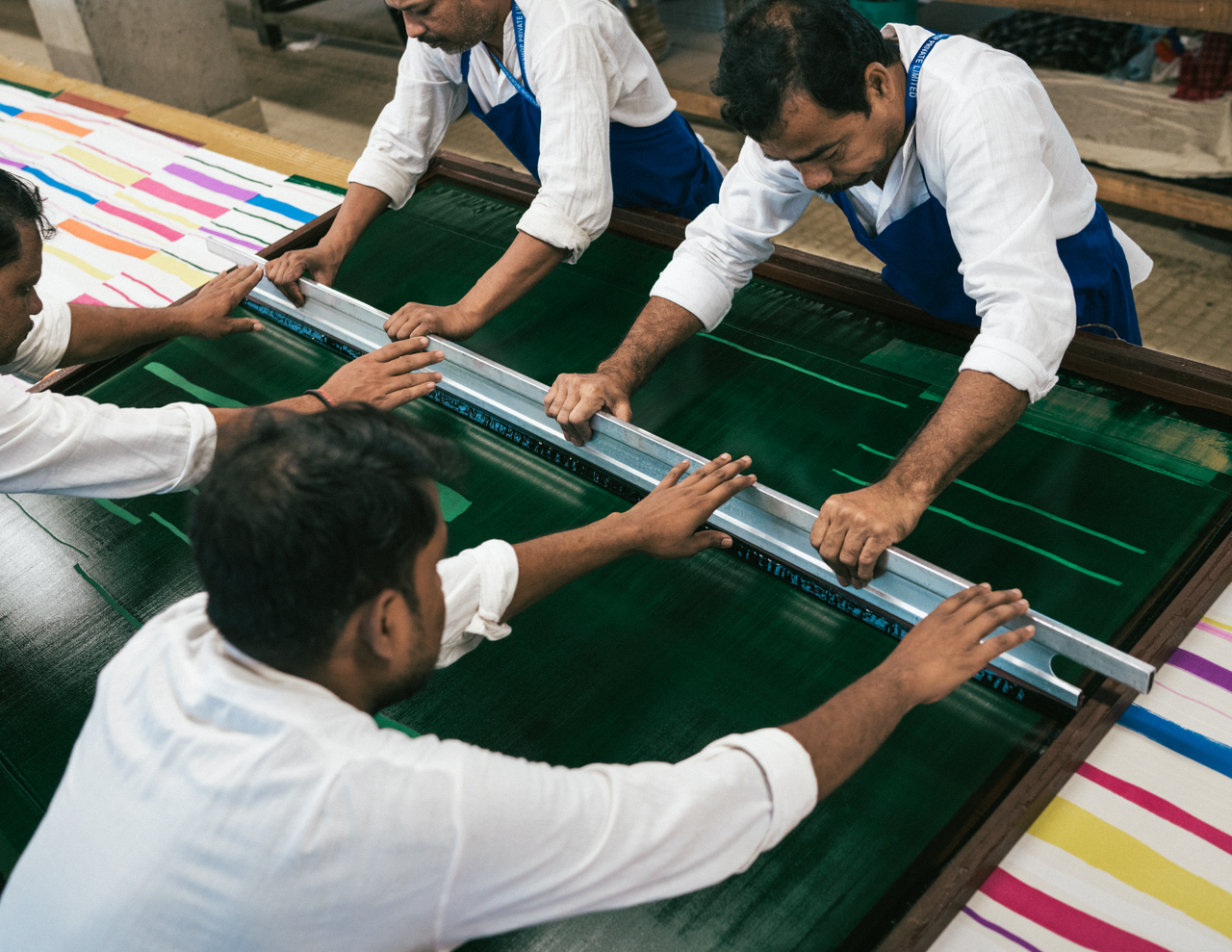
Nous avons installé un procédé naturel et innovant d’épuration des eaux usées par les plantes (Cana Indica) et des bactéries. Composé de 10 bassins sur deux niveaux, elles filtrent l’eau avant que celle-ci ne réintègre le circuit de production.
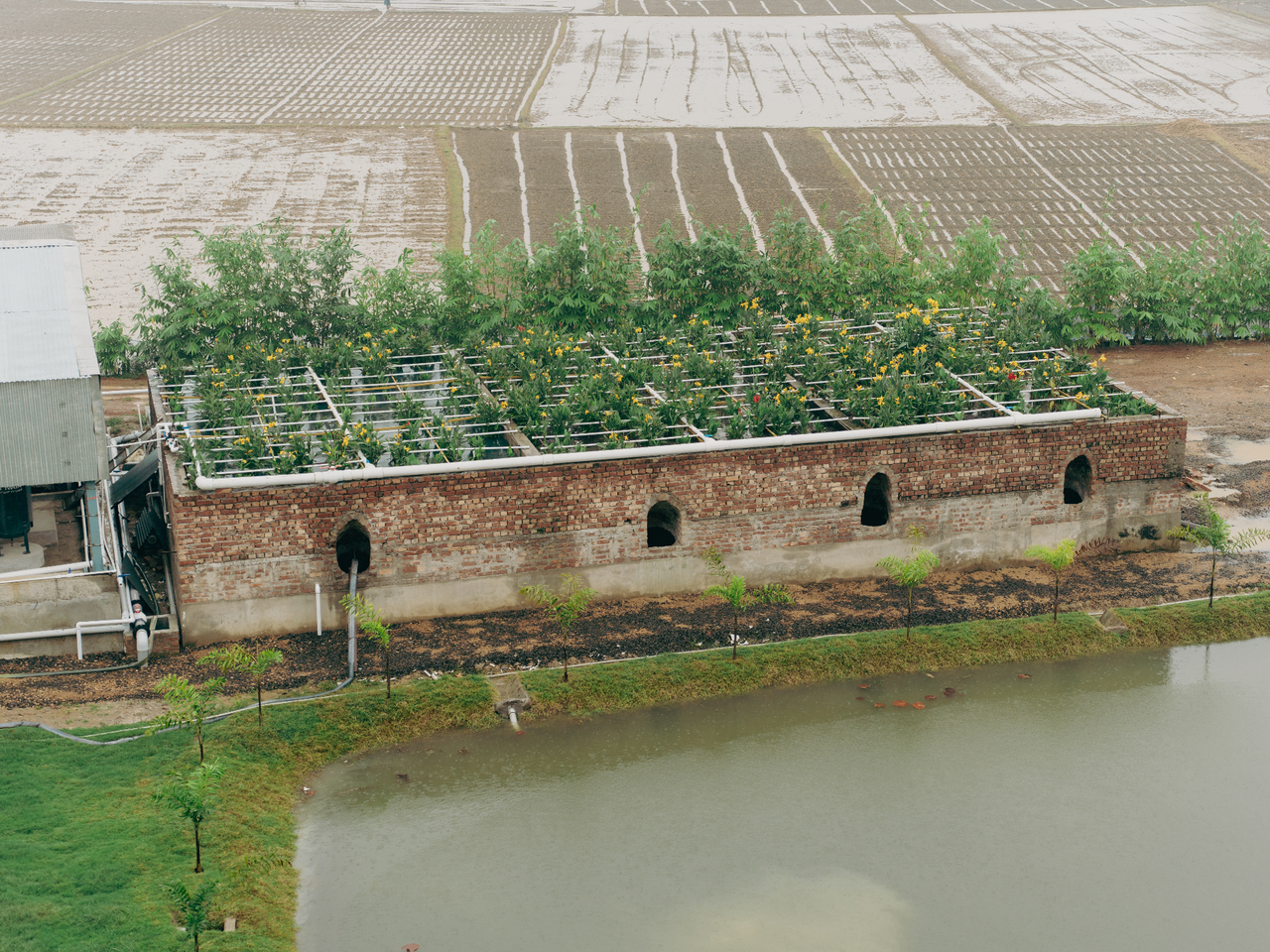
Chaque vêtement mii se réalise de A à Z à l’atelier, du fil jusqu’à la préparation des commandes. Nous ne travaillons que des matières naturelles, coton , lin, soie, laine…
A quelques mètres de l'atelier , un autre espace, imaginé comme un studio de création, nous permet chaque saison de faire de la recherche et développement.
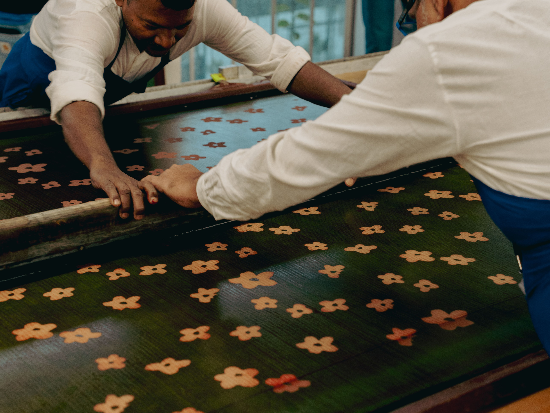
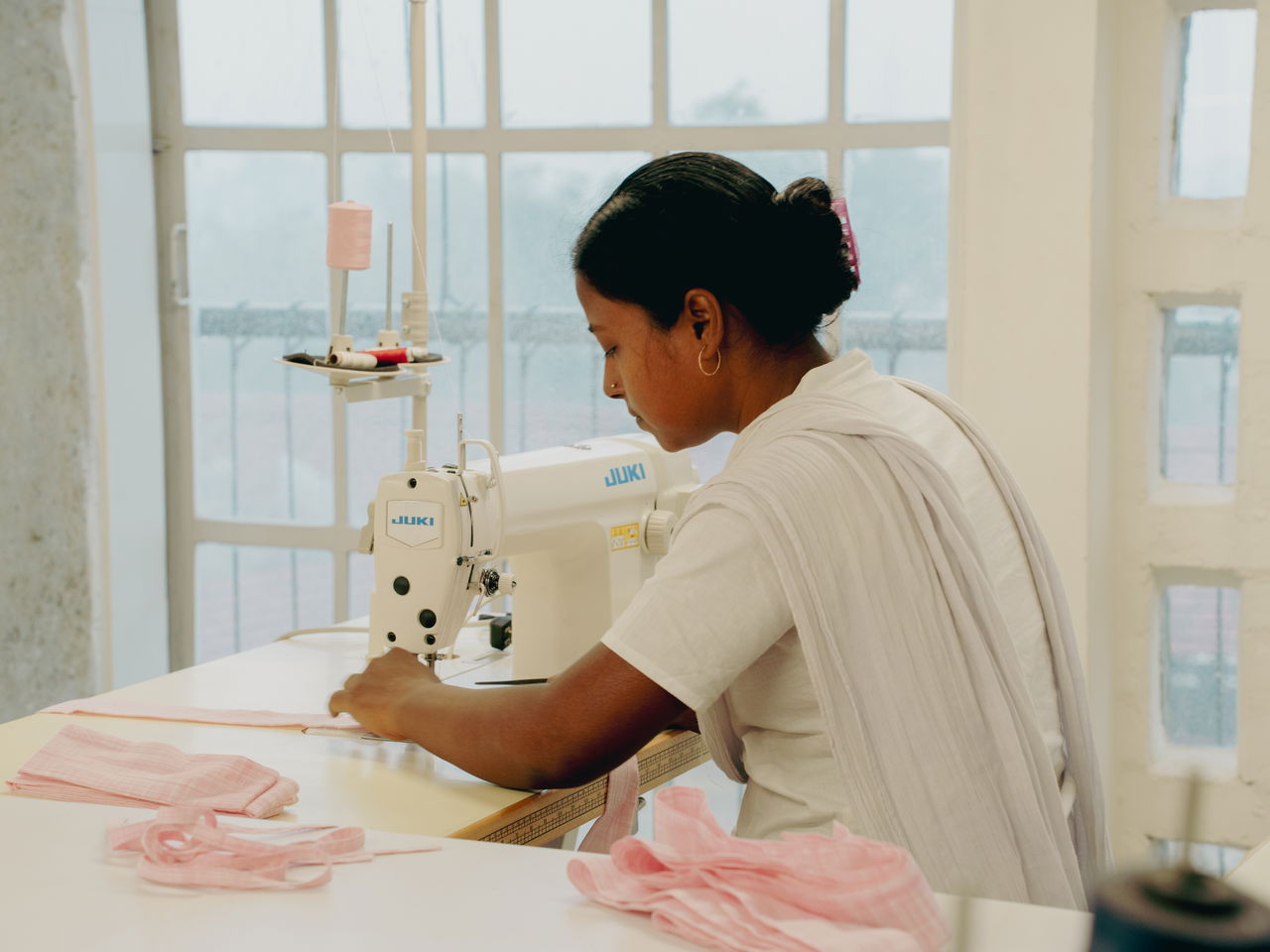
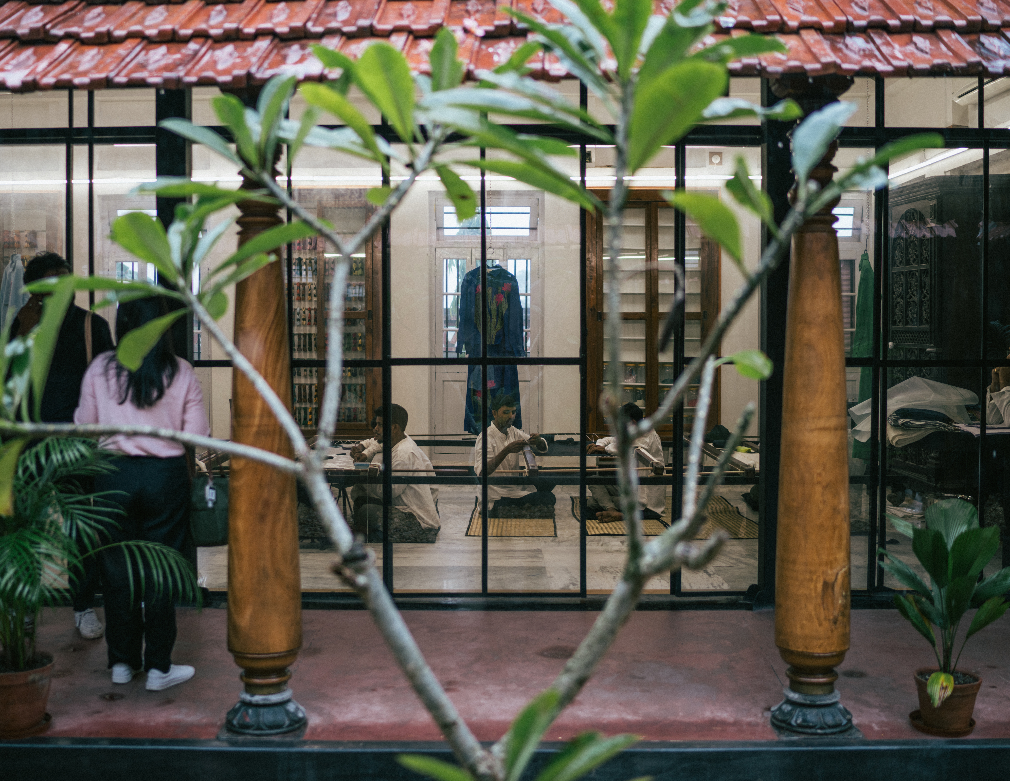
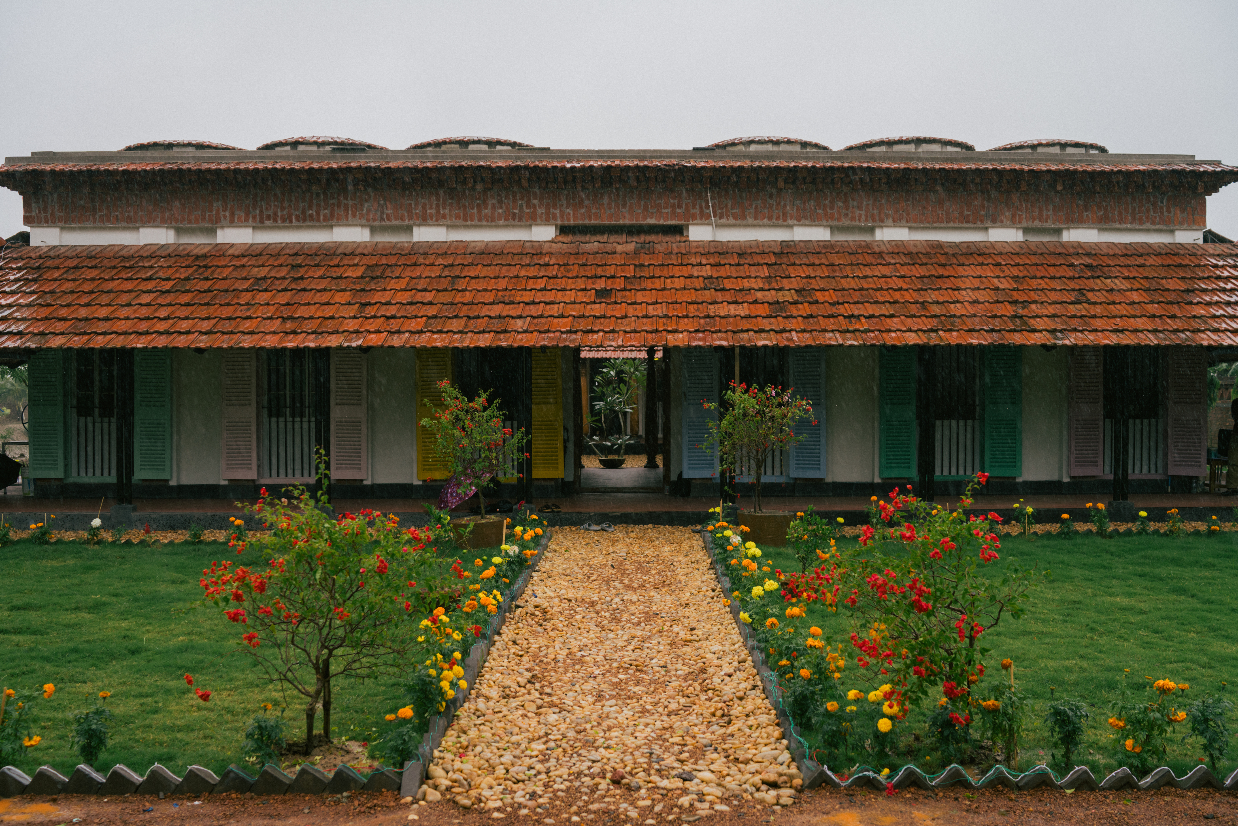
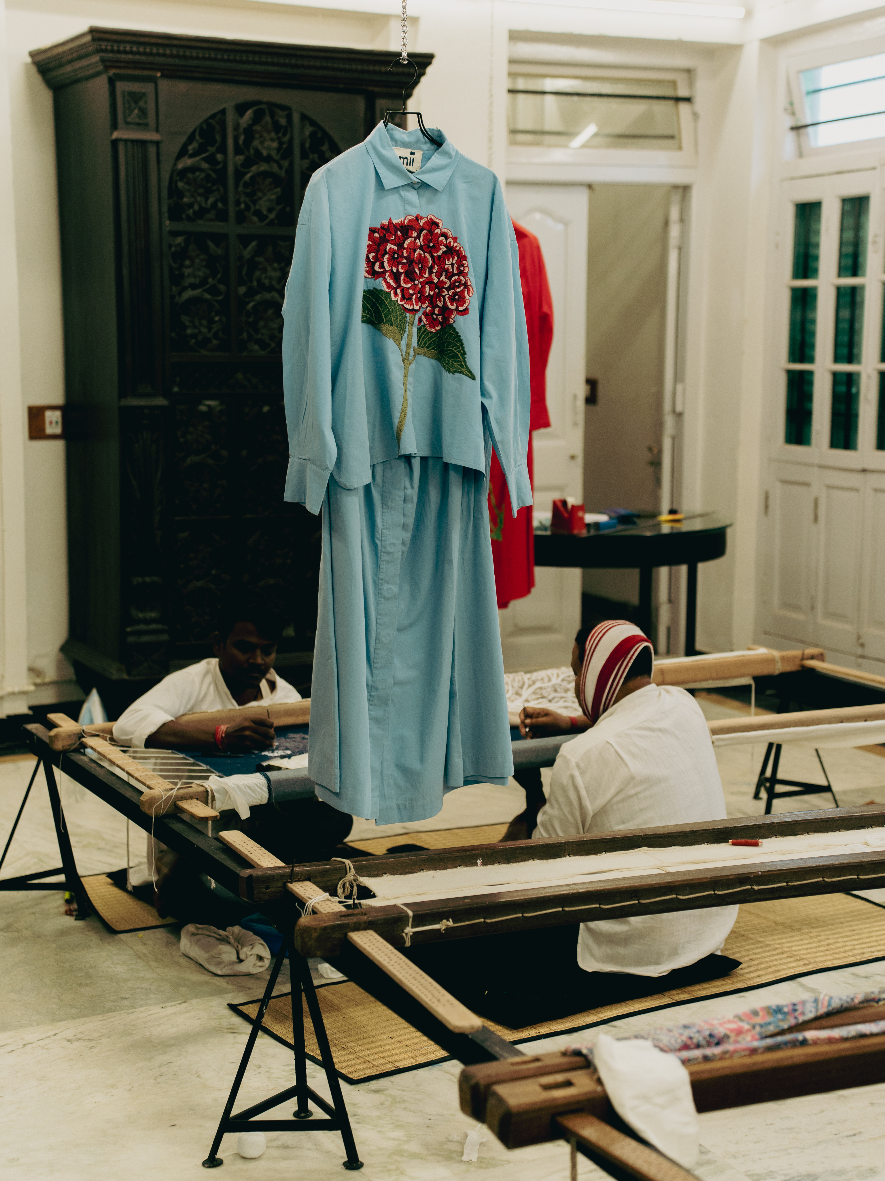
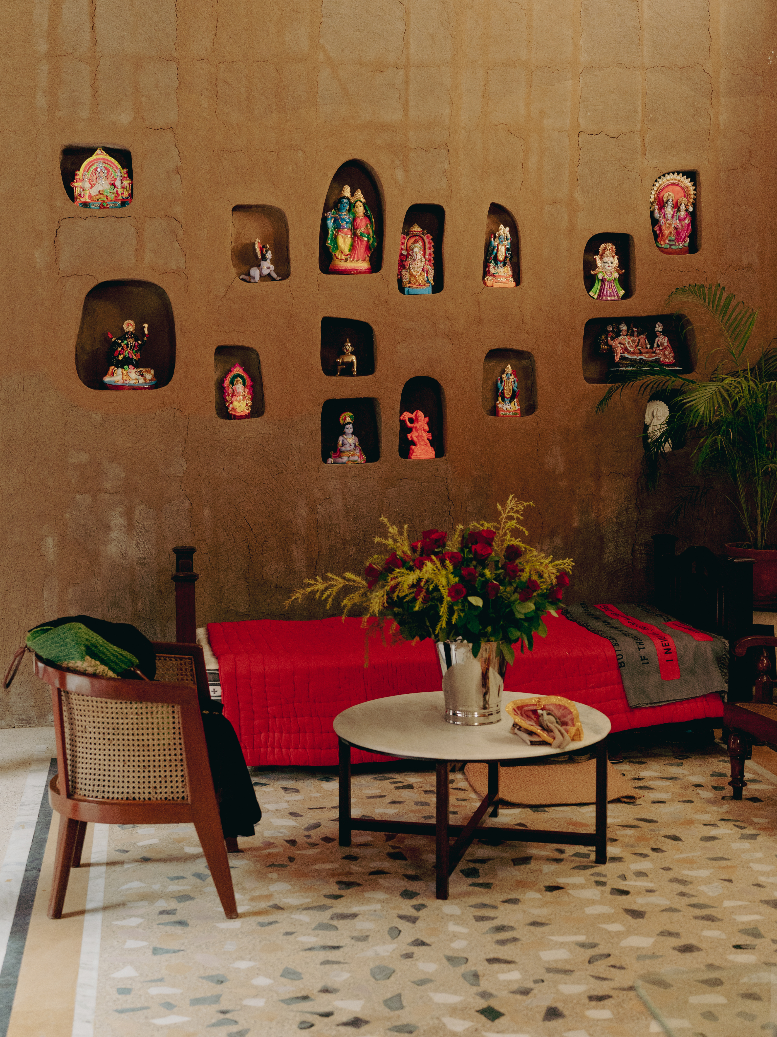
À ses côtés, un étang et un champ de manguiers, de litchis, ainsi qu’une parcelle cultivée de manière biologique jouxtent la résidence, qui héberge les employés qui le souhaitent.
Nous menons de nombreux projets pilotes sur notre terrain, une parcelle est, par exemple, réservée à la culture d’indigo. Nous y récoltons et transformons depuis plus d’un an de l’indigo, culture qui a complétement disparu de la région pendant la colonisation.
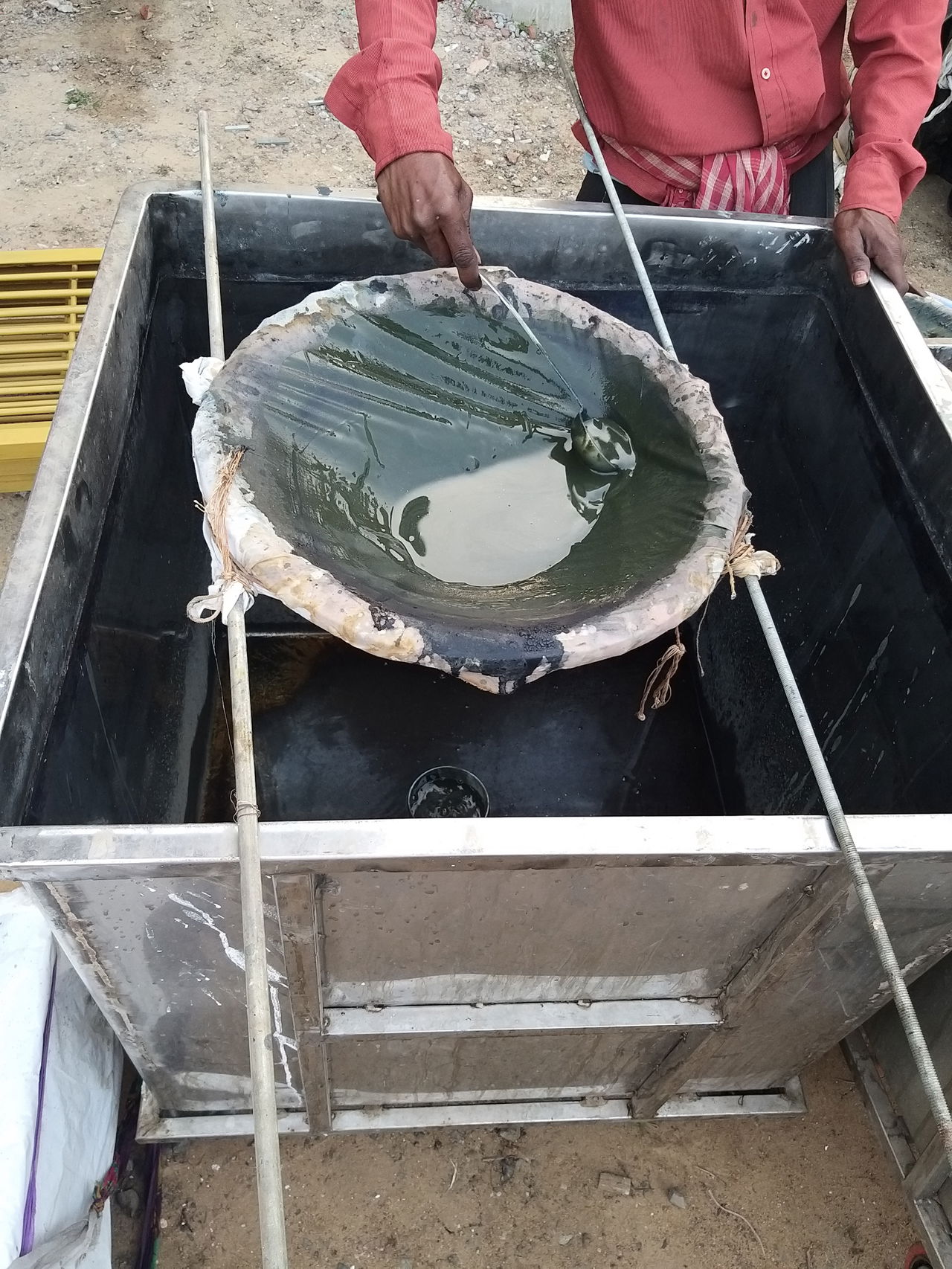

À côté de ce projet créatif et ambitieux, Mii a pour projet d’ouvrir une école de formation pour apprendre les techniques ancestrales et savoir-faire textiles aux familles des villages alentour. Une dimension sociale et environnementale forte, qui irrigue la marque depuis ses débuts.
The mii workshop


We chose to set up our workshop, from the start of the brand, to control the entire process, from creation to production. Knowing our entire chain also means better managing our costs so that the work of the artisans is paid without multiple intermediaries.
Through Mii, we want to put back in its place and back on the front of the stage an ancestral know-how that has been mistreated by nearly 2 centuries of colonization and then by a fast fashion that is destructive on all levels.
We also want to participate, at our level, in the preservation of know-how that will disappear in a few decades if nothing is done. The last generation of craftsmen is still there but the next generation will not be assured if their skills are not valued, organized, modernized. This is what we are working to do, sometimes making mistakes but with a single credo: move forward, build, try to do better than the previous one every day and put people at the heart of our production.


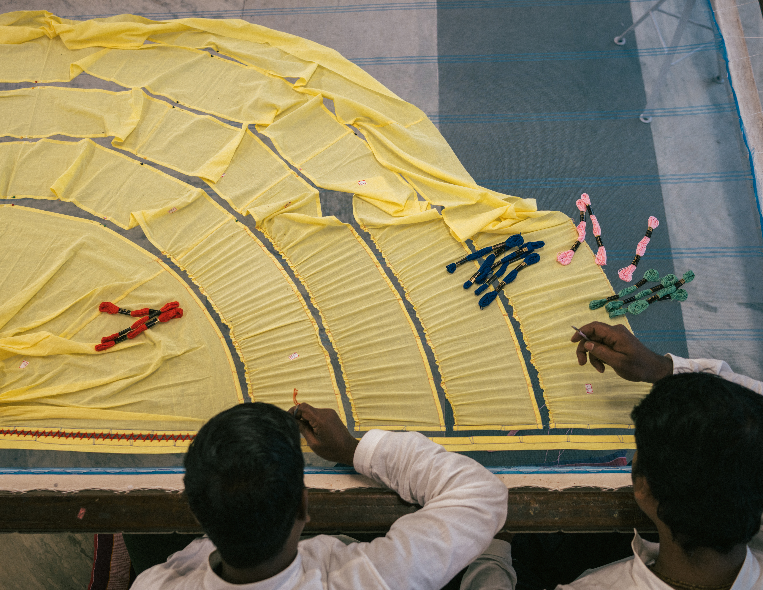
We chose to settle in the countryside, as close as possible to the villages of artisans and the birthplace of Bapan. Our wish is to participate in the economic development of this isolated region and to develop employment there.
The factory exceptionally combines artisanal techniques such as embroidery, block printing and screen printing combined with technology, cutting-edge machines for fixing prints or preparing threads for weaving.
Our weavings are always done in the villages on traditional looms, it is a choice we made to allow the surrounding villages to develop. For more than 10 years we have been working with the same families of weavers.


We have installed a natural and innovative process for purifying wastewater using plants (Cana Indica) and bacteria. Composed of 10 basins on two levels, they filter the water before it re-enters the production circuit.

Each mii garment is made from A to Z in the workshop, from the thread to the preparation of orders. We only work with natural materials, cotton, linen, silk, wool… A few meters from the factory, another space, imagined as a creative studio, allows us to do research and development each season.





Next to it, a pond and a field of mango trees, lychees, as well as an organically cultivated plot adjoin the residence, which houses employees who wish to do so.
We are carrying out many pilot projects on our land, for example, one plot is reserved for indigo cultivation. We have been harvesting and processing indigo there for over a year, a crop that completely disappeared from the region during colonization.


Alongside this creative and ambitious project, Mii plans to open a training school to teach ancestral techniques and textile know-how to families in the surrounding villages. A strong social and environmental dimension, which has permeated the brand since its beginnings.
The mii workshop

We chose to set up our workshop, from the start of the brand, to control the entire process, from creation to production. Knowing our entire chain also means better managing our costs so that the work of the artisans is paid without multiple intermediaries.
Through Mii, we want to put back in its place and back on the front of the stage an ancestral know-how that has been mistreated by nearly 2 centuries of colonization and then by a fast fashion that is destructive on all levels.
We also want to participate, at our level, in the preservation of know-how that will disappear in a few decades if nothing is done. The last generation of craftsmen is still there but the next generation will not be assured if their skills are not valued, organized, modernized. This is what we are working to do, sometimes making mistakes but with a single credo: move forward, build, try to do better than the previous one every day and put people at the heart of our production.



We chose to settle in the countryside, as close as possible to the villages of artisans and the birthplace of Bapan. Our wish is to participate in the economic development of this isolated region and to develop employment there.
The factory exceptionally combines artisanal techniques such as embroidery, block printing and screen printing combined with technology, cutting-edge machines for fixing prints or preparing threads for weaving.
Our weavings are always done in the villages on traditional looms, it is a choice we made to allow the surrounding villages to develop. For more than 10 years we have been working with the same families of weavers.


We have installed a natural and innovative process for purifying wastewater using plants (Cana Indica) and bacteria. Composed of 10 basins on two levels, they filter the water before it re-enters the production circuit.

Each mii garment is made from A to Z in the workshop, from the thread to the preparation of orders. We only work with natural materials, cotton, linen, silk, wool… A few meters from the factory, another space, imagined as a creative studio, allows us to do research and development each season.





Next to it, a pond and a field of mango trees, lychees, as well as an organically cultivated plot adjoin the residence, which houses employees who wish to do so.
We are carrying out many pilot projects on our land, for example, one plot is reserved for indigo cultivation. We have been harvesting and processing indigo there for over a year, a crop that completely disappeared from the region during colonization.


Alongside this creative and ambitious project, Mii plans to open a training school to teach ancestral techniques and textile know-how to families in the surrounding villages. A strong social and environmental dimension, which has permeated the brand since its beginnings.

